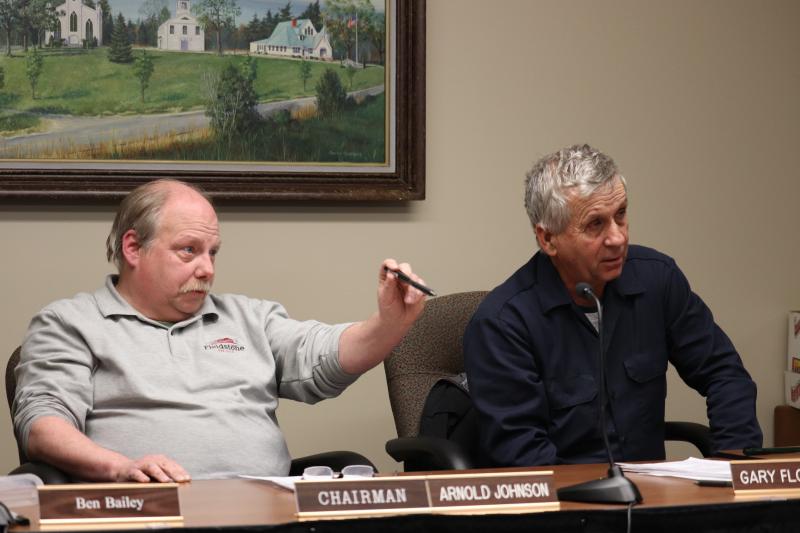Planning Board looks ahead at potential housing development
ROCHESTER — A Dartmouth-based developer has laid out plans to construct a 208-unit apartment complex at the intersection of Routes 28, 58 and 495 through the use of a “40R smart growth zoning overlay district.”
Steen Realty and Development Corp. representatives outlined their proposal to a joint meeting of Selectmen and the Planning Board on Jan. 3. There, and at a Jan. 8 Planning Board meeting, officials and residents discussed the potential impact on the town.
Steen seeks to use Chapter 40R of a state law designed to promote the construction of affordable housing. Unlike the more familiar Chapter 40B, the 40R overlay district approach gives voters and local officials a larger role in approval of the project.
Steen’s development, at the old R.F. Morse Nursery site now dubbed Rochester Crossing, would consist of four separate four-story buildings containing a total of 160 two-bedroom units, 24 one-bedroom units and 24 three-bedroom units. Two retail stores would also be constructed at the site.
One quarter of the apartments would be rented at rates deemed “affordable” by the state. The remainder would be rented at market rates.
Under Chapter 40R and the companion Chapter 40S, acceptance of the project would make Rochester eligible for state money to help pay for additional services needed by the development.
On Jan. 3, company representative Kenneth Steen told officials that, if the project is approved, the town would receive a one-time state payment of $1.1 million plus $3,000 for each unit approved.
Approving the project would require Town Meeting to establish a “zoning overlay district.” The Planning Board would then haveresponsibility for permitting and oversight of any construction plans within that district.
But the first step, according to Planning Board Chair Arnold Johnson, is for both the Planning Board and Selectmen to vote to allow Steen Realty and Development to move forward with a financial impact study. The decision, Johnson stressed, would not be approval of the project — only of getting the study done.
Johnson added that developers are planning build a sewage treatment plant to deal with the waste increase in the area. He said the project would draw water from Wareham’s system.
At both last week’s and Tuesday’s meeting on the project, officials and residents aired questions and concerns about the apartments.
Selectmen Chair Woody Hartley asked if the project would be affordable for the seniors who would most need affordable housing.
Steen said Rochester is allowed to request that 70 percent of the units rented out initially be rented to Rochester residents, which could help get seniors in the units.
The development would likely attract families as well, and Steen estimates that it would add 52 students into the school system in Rochester.
To mitigate the potential cost to the town because of the influx in students, Rochester could receive what are called 40S funds at their disposal.
The state has created Section 40S to make sure that towns are not burdened by the rising school costs when they create smart growth overlay districts. Judy Barrett, a consultant for Steen, said that “most towns have not ended up needing 40S revenue.”
David Hughes, member of the Park Commission, asked if additional funds would be provided to the fire department. “It would probably have to purchase additional equipment to service four story buildings,” Hughes said.
Steen responded that it did not, but the over $1 million sum of money goes to the town’s general funds and left it as a local decision what to do with those funds.
“The most important take away from that is that there is no land of Oz,” said Planning Board Clerk Ben Bailey. “It’s going to be 40R or 40B.”
Bailey said that some form of affordable housing project is heading to Rochester no matter what, but that the 40R route is the best choice.
“It’s like the difference between food and poison — and I’ll take the food,” he said.
Planning Board Vice Chair Gary Florindo said he’d be worried that a recreational marijuana business set up close to the development, posing a threat to the children living there.
However, Johnson quickly pointed out that it wasn’t in the industrial zone, which would be the only accepted location for potential pot shops in the future.
Steen Realty requested support of the Planning Board and Board of Selectmen, as it cannot begin the application process for the district without that support.
The boards did not vote on the issue at the Jan. 3 meeting, but promised to vote on it in the coming weeks.












